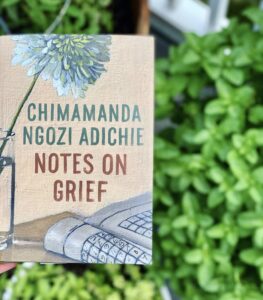
In this articulate essay by Chimamanda Ngozi Adichie, grief is disambiguated. She writes about how grief ravages one, strips one aloof; how words, the languages of grief, become intricate. And how, for the rest of our lives, we will live with our hands unfurled for things that are no longer here.
I always tell people “sorry” for their deceased ones, I tell them to take heart. But I do not know what this grief feels like; I have never grieved before. I have lost distant neighbours and relatives I had never seen. I have lost an aunt who died when I was a child; but I was young, too young to know what death or grief even meant.
I am an over-thinker. I worry about many things. Thinking about the prospective death of my parents is one of them. It leaves this cloak of despair in me, hampers me. Often, I think to myself: “So my parents are going to leave me one day, how?” Or “When is it going to happen? How are they going to die? Will they be crushed by a trailer while crossing the express road? Will they die inside their cars, while steering? Will they die of poisoning? Of cancer? Or will they slump inside the bathroom? Will they sleep and not wake up again? How? How will I take it? The tears? Will they die right in front of my eyes? Or will I hear it from somebody else?
When I was much younger, I used to rescind these thoughts. I used to write happy stories, deliberately avoiding the Father or Mother’s death trope. Because I felt if I write about these things or think about these things, they would come to pass. Don’t blame me, I was a child, so naive. Of course, they will happen. It’s not pessimistic to think that way, it’s to be aware of reality.
There is a requisite for us to be aware of our mortality, that one day, we would leave this mundane sphere. There is an urgency for us to do more because one day, we will no longer exist. I like to think of this book as a Memento Mori (an object that reminds me of death).

